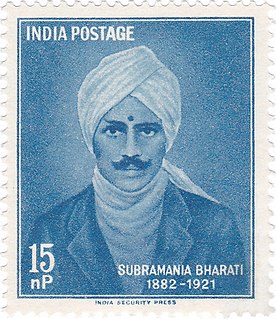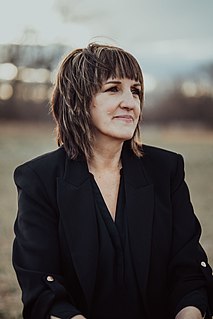A Quote by Garrison Keillor
Forget what you learned about poetry in school. (That it's complex, opaque, a problem to be solved in 1500 words by tomorrow.) Poetry is the last preserve of honest speech and the outspoken heart. It holds the cadence of common life. It has a passion for truth and justice and liberty; it is a buoy to people in ordinary trouble: to a friend whose life has gone skidding into the meridian, who has been struck by bad news, who is frying eggs and hash browns and has whiny child clinging to his pant leg.
Quote Topics
About
Bad
Bad News
Been
Browns
Buoy
Cadence
Child
Clinging
Common
Common Life
Complex
Eggs
Forget
Friend
Frying
Gone
Hash
Heart
His
Holds
Honest
Justice
Last
Learned
Leg
Liberty
Life
News
Opaque
Ordinary
Outspoken
Passion
People
Poetry
Poetry Is
Preserve
Problem
School
Solved
Speech
Struck
Tomorrow
Trouble
Truth
Truth And Justice
Whose
Words
Related Quotes
Often poetry, especially the sort of poetry I write, is concerned with looking at the borders between the sensual and the spiritual and seeing them as divided, equivocal, that mystery somehow can break in to the ordinary. And we read poetry I think in part, to gain a sense of that intimacy with things that we can't understand that are unable to be understood but that buoy up our lives.
Poetry is the most direct and simple means of expressing oneself in words: the most primitive nations have poetry, but only quitewell developed civilizations can produce good prose. So don't think of poetry as a perverse and unnatural way of distorting ordinary prose statements: prose is a much less natural way of speaking than poetry is. If you listen to small children, and to the amount of chanting and singsong in their speech, you'll see what I mean.
I laughed and pointed out that "Hash Browns Mean Nothing Without You" was a pretty good name for a band. "Or a song," the Duke said, and then she started singing all glam rock, a glove up to her face holding an imaginary mic as she rocked out an a cappella power ballad. "Oh, I deep fried for you / But now I weep 'n' cry for you / Oh, babe, this meal was made for two / And these hash browns mean nothing, oh these hash browns mean nothing, yeah these HASH BROWNS MEAN NOTHIN' without you.
We do have to learn poetry at school. Poetry is interesting to me, particularly Chinese poetry. It's like an ancient form of song. There's five sentences, seven sentences - they're very different from English poetry. Chinese poetry is much more rigorous. You can only use this many words, and they will form some kind of rhythm so people can actually sing it. To me, poetry is quite abstract but also quite beautiful.
There's no difference between lyrics and poetry. Words are words. The only difference is the people who are in academic positions and call themselves poets and have an academic stance. They've got something to lose if they say it's all poetry; if there's not music to it, and you have to wear a certain kind of checkered shirt or something like that. It's all the same. Lyrics are lyrics, poetry is poetry, lyrics are poetry, and poetry is lyrics. They are interchangeable to me.
His [Death] voice is cold at first, John. It seems unfeeling. But if you listen without fear, you find that when he speaks, the most ordinary words become poetry. When he stands close to you, your life becomes a song, a praise. When he touches you, your smallest talents become gold; the most ordinary loves break your heart with their beauty.
To be honest, I wasn't crazy about the kind of poetry I found in high school English books. I didn't get really excited about poetry until I discovered Lorca in college. If it wasn't for surrealism, I'm not sure I'd have become so involved in poetry. I was attracted by the extravagant imagery and elements of fantasy. This was in the '70s and it seemed to fit the psychedelic mood of the times. I found it liberating.





































